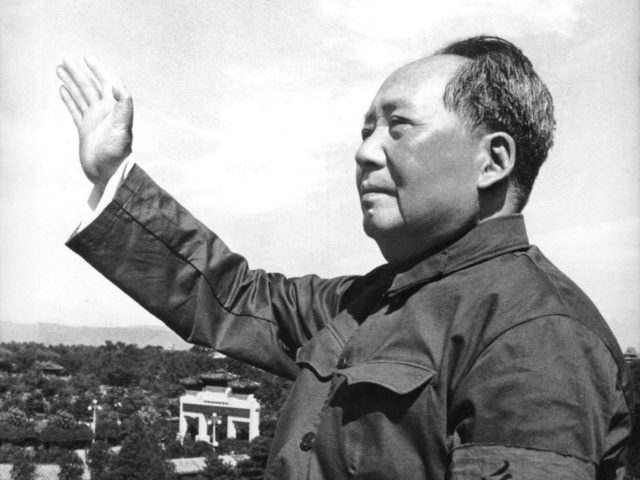The AFP news service notes the Chinese Communist Party has decided Chairman Mao was “70 percent right and 30 percent wrong,” and that involves ignoring a huge amount of wrong — cannibal flesh banquets, for example.
“Launched by Mao in 1966 to topple his political enemies after the failure of the Great Leap Forward, the Cultural Revolution saw a decade of violence and destruction nationwide as party-led class conflict devolved into social chaos,” the South China Morning Post recalls. “Teenaged Red Guards beat teachers to death for being ‘counter-revolutionaries’ and family members denounced one another while factions clashed bitterly for control across the country.”
In southern Wuxuan, “the hearts, livers and genitals of victims were cut out and fed to revelers,” according to a “high-ranking member of an early 1980s official investigation,” who spoke anonymously, fearing repercussions.
He has reportedly prepared a manuscript detailing his allegations but has not attempted to publish it. A previous book published after Tiananmen Square, called Scarlet Memorial, by journalist Zheng Yi, covered some of the same material.
“All the cannibalism was due to class struggle being whipped up and was used to express a kind of hatred. The murder was ghastly, worse than beasts,” he said.
He rattled off a string of horrors, including “beheadings, beatings, live burials, stonings, drownings, boilings, group slaughters, disembowellings, digging out hearts, livers, genitals, slicing off flesh, blowing up with dynamite, and more.”
In one vivid example from 1968, a teacher was beaten to death, then another teacher was forced at gunpoint to rip out his heart and liver, which were barbecued and eaten by the students.
According to this source, at least 38 people were eaten during the dark days of Wuxuan, which thankfully prefers frogurt and fish bowls these days. Across the wider Guangxi province, it has been estimated that 150,000 people were killed by Cultural Revolution political violence, a bloodbath so appalling that it spread rumors across the entire country.
Unsurprisingly, the Chinese government is anxious to erase the grim history of the Cultural Revolution in Wuxuan, and doing a fairly good job of it. One local interviewed by AFP said he witnessed the cannibal revels firsthand but shrugged off that history as having “no meaning” today. Attempts by the investigators sent into Wuxuan to publish their findings have been suppressed, and they say the intimidation is getting worse, as the government in Beijing tightens its grip on public opinion.
“The more you talk about such things, the more current CCP leaders are worried,” X.L. Ding of the Hong Kong University of Science and Technology told AFP.
More specifically, he said the Party fears that “recalling the officially-sanctioned chaos and violence could undermine its legitimacy.” It’s good news to hear that Mao’s successors feel so insecure. There might be hope for China yet, and for other Asian countries threatened by Beijing’s ambitions.

COMMENTS
Please let us know if you're having issues with commenting.